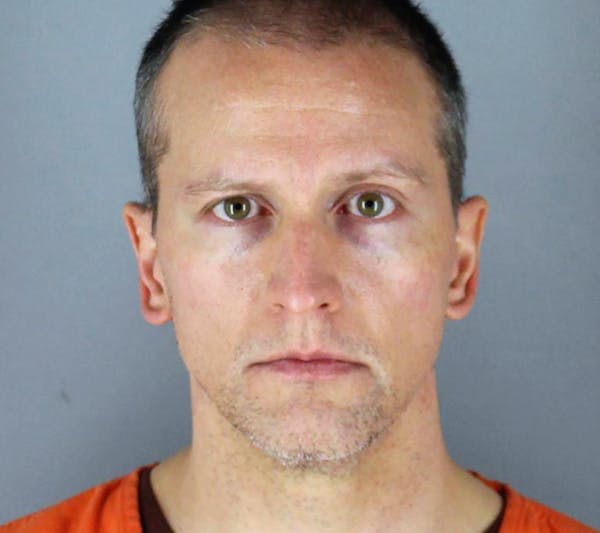Every morning this month, a quiet ritual unfolds inside a large white tent in the parking lot of a north Minneapolis strip mall marked by boarded-up businesses.
As cars roar by, volunteers lay out nine pretty rugs under the tent's roof, placing a prayer pillow, folding chair or kneeler on each. They set bouquets of flowers at a small table up front and next to the entrance sign announcing "Prayer Tent."
"Silent Prayer. For 8 Minutes, 46 Seconds. Stand, sit or kneel," reads the sign, which has guided a stream of visitors to the new project called 30 Days of Silent Prayer: Healing the Heart of Our City.
"The goal is the healing of the multiple layers of trauma our communities have experienced and preparing ourselves to create a different future,'' said Don Samuels, former Minneapolis City Council member and ordained minister, who launched the project July 1 with his wife, Sondra Samuels.
The tent offers people a sanctuary to get in touch with their grief over the COVID-19 pandemic, the death of George Floyd at the hands of the police, the destruction of local businesses and longstanding community issues, he said.
It adds a spiritual component to the array of protests and policies being debated to address community traumas.
"This is a shared public ritual where people of all faiths can come together," he added.
The prayer tent is open from 10 a.m. to 7 p.m. daily, hosted by North Side faith organizations that lead the silent prayers and collaborate on the projects.
As they explain to their guests, the 8 minute, 46 second prayer period reflects the amount of time a Minneapolis police officer kept his knee on George Floyd's neck before he died.
Jamia Muriziq, 14, was among a group of students from Liberty Community Church's 21st Century Academy who stopped by to pray shortly before noon Tuesday. Wearing an "I can't breathe" COVID-19 protection mask, she said she was grateful for the experience.
"I haven't had time to be alone with my thoughts," said Jamia, leaving the tent. "A lot of people my age don't have time to think things through. I kind of reflected about stress. And I prayed for a lot of things."
Tuesday was Day 7 for the project. The first prayer was introduced by an elder from Liberty Community Church, one of many African-American churches on the North Side that are collaborating on the project.
On the physically distanced rugs inside sat several Liberty church leaders, project volunteers and people who'd driven from as far as St. Paul and Eden Prairie. While most sat with heads bowed in silent prayer, one man held Buddhist prayer beads and another sat cross-legged in a yoga position.
At 8 minutes, 46 seconds, the elder tapped a singing bowl that chimed, signaling the end of the prayer. Some people opened their eyes. All remained quiet.
"You are welcome to stay longer," Samuels told the group. "And we'd like you to record your thoughts."
Samuels gestured to another tent just steps away, where a videographer was recording guests' experiences and posting them on social media and their Facebook page.
The Rev. Alika Galloway, co-pastor at Liberty Community Church, stood up after the silent prayer. She called the prayer tent an "opportunity to transform grief into positive energy."
"It's a clarion call, a call of unity," said Galloway. "A call of grieving collectively. Even when we're down, we pick each other up."
Julie Stevens said she drove from St. Paul to visit the prayer site, which she learned about from a friend. She said she wanted "to feel the pain that is in this geography, to feel the sense of place." She also was seeking divine inspiration over her role in making things better.
"You're praying for something that hasn't come to you yet," she said.
Kathleen Olsen came from the Seward neighborhood of Minneapolis, where she's a church musician associated with the Sisters of St. Joseph of Carondolet. She serves on the sisters' committee focused on confronting racism and has come daily.
"When I'm done praying, I take a walk around the neighborhood," Olsen said. "I'm trying to get out of my white, liberal, progressive bubble. I want these prayers to seed something new in me."
Davontre Snoddy, a junior at Patrick Henry High School, has been staffing the videography equipment at the site. He said it's been a moving experience.
"Everyone is grieving for something," he said. "The lives lost. The looting. The stores burning down. And George Floyd. They ask, 'Why did it have to be like that?' "
The 30 Days of Prayer continues through July 30.

Want to share info with the Star Tribune? How to do it securely

'Safe recovery sites' would offer syringes, naloxone and more to people using drugs. The plan could be in peril.
New Minnesota GOP leaders seek peace with party's anti-establishment wing

Who is Republican Lisa Demuth, Minnesota's first House speaker of color?

